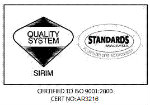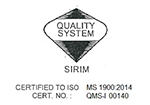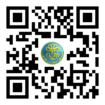How To Regain Past Glory In Science
Modern Muslims tend to be nostalgic with the great legacy of science left behind by the Muslim scientists of centuries past. Many could probably name some of these great figures who have been recognized as “fathers” in various fields of science.
No doubt, the legacy left behind by these figures are significant. However, should Muslims be satisfied just by glorifying the past? What about the here and now?
The fact remains that the Muslims of today seem to have lost the ability to master knowledge and what more, create new knowledge, in particular scientific knowledge.
The late Professor Ahmed Zewail, a Muslim Nobel laureate from Egypt, outlined four main barriers for modern Muslims to overcome. The first is the high rate of illiteracy in many Muslim communities and countries.
This, according to him, is the failure of educational systems in these countries, which ultimately leads to high rate of unemployment. Education and literacy (including scientific literacy) are the means that are needed to solve socioeconomic disparities in any community.
The second barrier is the limited use of human resources due to hierarchical dominance, strong seniority systems and the centralization of power which suppresses true human potential. Little Napoleons in bureaucracy more often than not get in the way of scientific progress.
We should learn from history when Caliph Harun al-Rashid provided an environment for scholars to conduct research without inhibiting their academic freedom through the establishment of the House of Wisdom in Baghdad in the 9th century.
The third barrier is the mix up of state laws and religious beliefs that causes confusion and chaos through the use of religion’s fundamental messages about the ethical, moral and human ingredients in life.
One fundamental message of Islam is that Islam is a complete way of life. Unfortunately, some people regard science as “worldly knowledge” and therefore, un-Islamic. This results in the dichotomy between Islam and science, which leads to Muslims being backward and left behind.
The fourth barrier that Professor Zewail stressed on is the existence of an incoherent vision for science and technology (S&T) in Muslim countries. Without a clear vision, focus and direction will be lost.
Most Muslim countries do not have a clear plan to build indigenous S&T capabilities, create a culture of scientific and technological innovation, and develop local scientists and technologists.
Foreign experts and consultants are often relied on when in fact there are local expertise to provide insights, inputs and suggestions to plan and navigate indigenous S&T vision.
Of course, the other major problem is implementation. While planning may look nice on paper, lack of proper monitoring results in failure in implementation. When a plan is not implemented properly, then there would be a waste in resources – financial, manpower and time.
To overcome these problems, Professor Zewail suggested three steps that need to be taken. The first is to eliminate illiteracy (including science illiteracy). This is a pertinent issue that needs to be urgently tackled.
One of the major concerns in Malaysia right now is the lack of interest among students to pursue science, technology, engineering and mathematics (STEM) for their studies and career.
If this is left unaddressed, then the future for STEM in Malaysia would be dim resulting in the incapability to build our scientific human resource capacity in these critical fields.
The second step suggested by Professor Zewail is to allow freedom of thought, minimizing bureaucracy, and developing a merit system in encouraging scientific innovation. This is taking a cue from the Islamic Civilisation when academic freedom was provided to the scholars to carry out research and innovation.
The third step is to build a sound science base by investing in special education for the scientifically-gifted, establish centres of excellence in science, and provide opportunities to apply knowledge in the industry and economic markets.
Unfortunately, at this point in time, science is not looked at as a major priority in many countries. As such, we see the growth of science is somewhat dampened.
There are many gifted youths who have potentials that can indeed be developed. The challenge is to identify these people, and provide them with the necessary support for them to develop themselves further.
For a country like Malaysia, we have to identify our niche areas in STEM that has a high potential to be developed. With the fourth industrial revolution, nurturing young talents in niche areas of STEM has never been more urgent.
It is not enough that we only be nostalgic of the great talents of the past glorious Islamic Civilisation. Without a doubt these figures can inspire but the inspiration should, by right, spur modern Muslims to be just like them, if not better.




